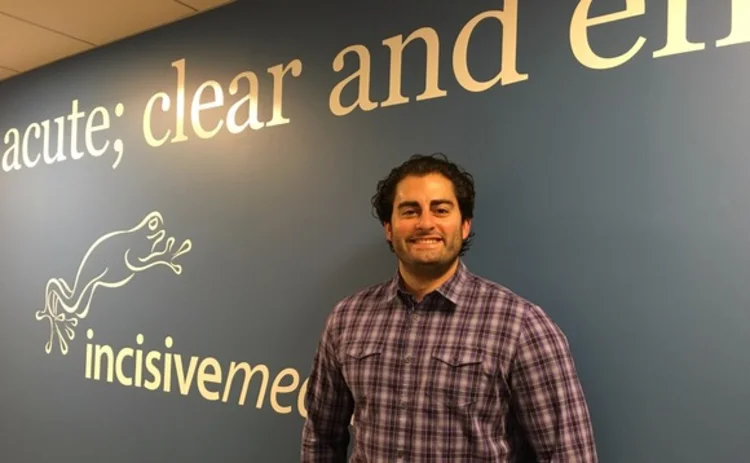Intelligent Innovation: Regulations Offer Way to Innovate
Dan looks at why regulations that force firms to innovate isn't necessarily a bad thing for the industry.

Last week marked the fifth installment of our annual European Trading Architecture Summit (ETAS) held in London. Although I wasn’t able to attend the event, a major theme at this year’s conference was innovation.
This is nothing new. These types of conferences always tend to focus on major themes that firms of various sizes and types can relate to. Innovation, regulation and cyber security are topics that seem to crop up on just about every panel.
However, in looking over our coverage of the event, one quote from a panelist stood out to me.
My colleague David Dawkins wrote a story on the C-level panel. In it, he cited an audience member asking the panelists if firms would look at the recent delay to MiFID II implementation “as an opportunity to invest in innovation, or rather a regulatory-driven obligation.”
Panelist Usama Fayyad, chief data officer for Barclays, had an interesting response.
"It's a sad statement about our industry if we have to wait for the regulators to force us to innovate," Fayyad said.
I understand what Fayyad is trying to say. The industry would be in a very sad state if firms only waited until a regulation came down the pipeline to upgrade their systems.
However, with the massive amounts of compliance costs firms already have to carry, in addition to maintaining legacy systems on already limited IT budgets, can you really blame firms that are looking to use regulations as a springboard for innovation?
Innovating Intelligently
Basing some innovation around regulation isn’t the sexiest thing in the world, but it makes sense. When a firm opens an innovation lab, they’re always quick to tout the work they’re doing with flashy technology like blockchain and big data, but how often do those ventures turn into something usable?
I’m not going to sit here and say firms should never invest in technology that is not related to meeting some type of regulation. Waiting for the next regulation to come down before making any type of innovative investment is ridiculous. Over the past two decades this industry his grown by leaps and bounds thanks to firms looking to innovate on their own accord.
That being said, it doesn't mean remaining compliant can't be a driver for innovation as well.
The reason new mandates represent such a great opportunity to innovate is because you know they’re not going anywhere. It’s not as if MiFID II will be implemented ─ whenever that may be ─ and then two years from now regulators will decide to scrap the entire thing.
On the other hand, it’s quite possible a firm could spend millions of dollars on an enhancement that either doesn’t pan out or is only useful for a few years.
So while Fayyad might think it's disappointing to see firms forced to innovate due to regulations, I don't neccesarily agree. From my perspective, I view it as another, potentially safer, way for firms to spend money on improving the firm while also ticking the compliance box. As an example, both banks and asset managers are now required to report an unprecedented amount of information relating to their trading operations. But once the leg work of collecting, storing and distributing that data is tackled, firms can then take the extra step to analyze, tag and/or cleanse their internal data.
Maybe that makes me conservative and boring, but with the consistent stream of regulations being implemented, it seems there will be no lack of opportunities to create cutting-edge technology in the foreseeable future.
Food for Thought
- I highlighted David’s piece on the C-level panel, but there was a ton of great material produced stemming from ETAS. David also covered a panel looking at how technology could be leveraged to enhance front-office efficiency. Fellow European staff writer John Brazier wrote a story on a panel discussing the importance of culture and attitude when it comes to innovation and algorithm testing under MiFID II.
- Two of my worlds collided this week as Sports Illustrated posted a longform story on Caltech’s men’s basketball team. To summarize, Caltech’s basketball team is not very good. The school, unlike the Ivies or NESCACs (e.g., Williams, Amherst, Middlebury), won’t give any allowances to athletes, meaning that a student-athlete needs to have the same grades as everyone else to get in the school, which roughly equates to a 3.8 GPA and a median SAT score of 2240. Understandably, the program has not exactly excelled, once going 25 years without winning a single conference game. However, times are slowly beginning to change. The story is worth a read, as it’s probably one of the most unique collegiate athletic programs in the country.
- We are just a few weeks away from Waters USA, our flagship conference. For more information on the agenda, click here. It’s definitely worth checking out. I’m even chairing a panel!
- Finally, with Thanksgiving this Thursday, it’s only fair I release my Thanksgiving Sides Power Rankings:
- 1. Stuffing- This is what Thanksgiving is all about it. The only food I eat once a year, yet still love.
- 2. Mashed Potatoes- An absolute classic you can’t go wrong with.
- 3. Sweet Potato Casserole- This is mashed potatoes’ younger, crazier brother. He’s a bit of a wild card, and not as consistent as his older brother, but a great choice nonetheless.
- 4. Green Beans- I’d normally substitute this for asparagus, but I feel like this is more commonly tied to the holiday. Nothing to write home about.
- 5. Croissant- Why waste stomach space on this filling carb with so many other delicious options?
- Please note: Cranberry sauce does not qualify as a side because, like gravy, it’s something you put on your food, like a condiment. If you eat cranberry sauce by itself, you’re a sociopath.
Only users who have a paid subscription or are part of a corporate subscription are able to print or copy content.
To access these options, along with all other subscription benefits, please contact info@waterstechnology.com or view our subscription options here: https://subscriptions.waterstechnology.com/subscribe
You are currently unable to print this content. Please contact info@waterstechnology.com to find out more.
You are currently unable to copy this content. Please contact info@waterstechnology.com to find out more.
Copyright Infopro Digital Limited. All rights reserved.
As outlined in our terms and conditions, https://www.infopro-digital.com/terms-and-conditions/subscriptions/ (point 2.4), printing is limited to a single copy.
If you would like to purchase additional rights please email info@waterstechnology.com
Copyright Infopro Digital Limited. All rights reserved.
You may share this content using our article tools. As outlined in our terms and conditions, https://www.infopro-digital.com/terms-and-conditions/subscriptions/ (clause 2.4), an Authorised User may only make one copy of the materials for their own personal use. You must also comply with the restrictions in clause 2.5.
If you would like to purchase additional rights please email info@waterstechnology.com
More on Emerging Technologies
Market participants voice concerns as landmark EU AI Act deadline approaches
Come August, the EU’s AI Act will start to sink its teeth into Europe. Despite the short window, financial firms are still wondering how best to comply.
Ram AI’s quest to build an agentic multi-strat
The Swiss fund already runs an artificial intelligence model factory and a team of agentic credit analysts.
Fidelity expands open-source ambitions as attitudes and key players shift
Waters Wrap: Fidelity Investments is deepening its partnership with Finos, which Anthony says hints at wider changes in the world of tech development.
Fiber’s AI gold rush risks a connection drop
In search of AI-related profits, investors flocked to fiber cables, but there are worrying signals on the horizon.
JP Morgan gives corporates an FX blockchain boost
Kinexys digital platform speeds cross-currency, cross-entity client payments.
BlackRock further integrates Preqin, Nasdaq and Osaka Exchange partner, and more
The Waters Cooler: SGX remodels data lake, ICE seeks tokenization approval, TNS closes Radianz deal, and more.
ICE to seek tokenization approval from SEC under existing federal laws
CEO Jeff Sprecher says the new NYSE tokenization initiative is not dependent on the passage of the US Clarity Act.
Waters Wavelength Ep. 346: TS Imagine’s Andrew Morgan
This week, Andrew Morgan of TS Imagine talks with Wei-Shen about how fixed income trading behavior is changing.








